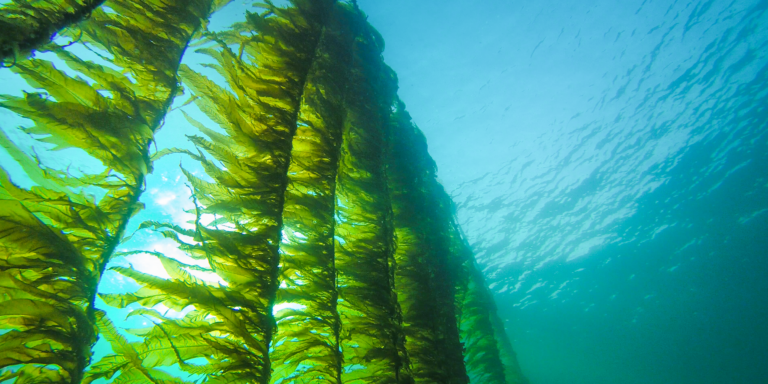Endless market possibilities with seaweed!

A nature-based business opportunity
Seaweed is one of the most underused resources on the planet. Farmed seaweed represents a sustainable and renewable source of biomass to meet the demands of a growing population, which is threatened by climate change, overfishing and expanding industries.
Seaweeds are a source for many important applications and the demand for the biomass is growing rapidly. The global seaweed market is currently worth about USD 8 billion a year and grows at an annual rate of 8%. Asia accounts for 95 % of the production. Technological advances can replace high labour costs and help turn seaweed cultivation in Europe into a viable commercial reality.
A gradual shift is taking place from agriculture on land, which requires lots of energy, to large-scale cultivation of crops in the ocean. As seaweed cultivation grows in Europe, so do the opportunities for new and exciting applications.

Boost your food with seaweed
Seaweeds are rich in fibre, minerals, iodine and umami flavour. They are a natural salt replacement, giving salty taste with 70% less sodium. Adding seaweed to a food product also contributes to a healthier ocean and a better climate. Sprinkle it on food, use it as a broth, roll sushi or make it crispy... there are many ways to make it delicious!

Kelp for cattle
Seaweeds are a source of protein, fiber and bioactive compounds that have positive effects on gut microflora. Seaweed can increase nutritional value, including iodine, of meat and dairy products, as well as tenderness and storage stability, with no adverse effect on flavour. Kelp for cattle can reduce methane in livestock, reducing greenhouse gas emissions.

Biomaterials and other markets
Seaweed bioplastics degrade rapidly and contain neither micro-plastics nor toxic chemicals. They can be used to make sealable films, sachets, bags, nets and more. Seaweeds help reduce energy and water consumption by the textile industry, creating durable fabrics that are more easily recycled. Seaweed components are also applied to a range of cosmetic products, nutraceuticals, and medicines.

Innovation & job creation
Seaweeds contribute to making other industries more sustainable (such as agriculture and aquaculture) and provide a wide range of local economic benefits, including creating jobs in all aspects of production, processing, marketing, technological development and much more. We can boost coastal economies and coastal ecosystems alike.

98% of our food energy comes from agriculture on land. Yet seaweeds grow faster than any land plant, and whilst they do, they provide several benefits to the environment. 70% of the world’s surface is covered by ocean and vast coastal areas present a huge potential in farming the ocean for biomass, with no conflict in land area use, no need for freshwater, fertilizers or pesticides.